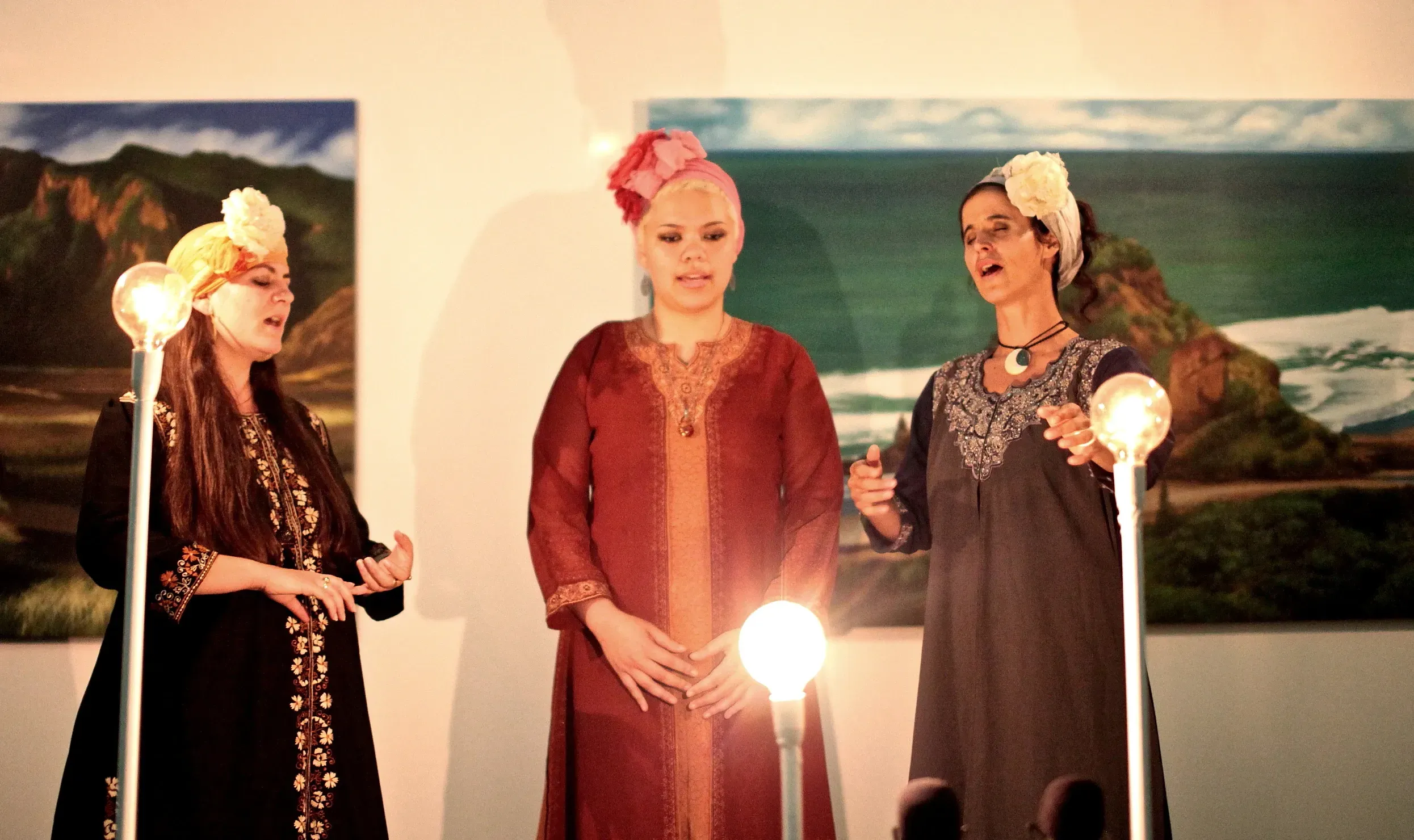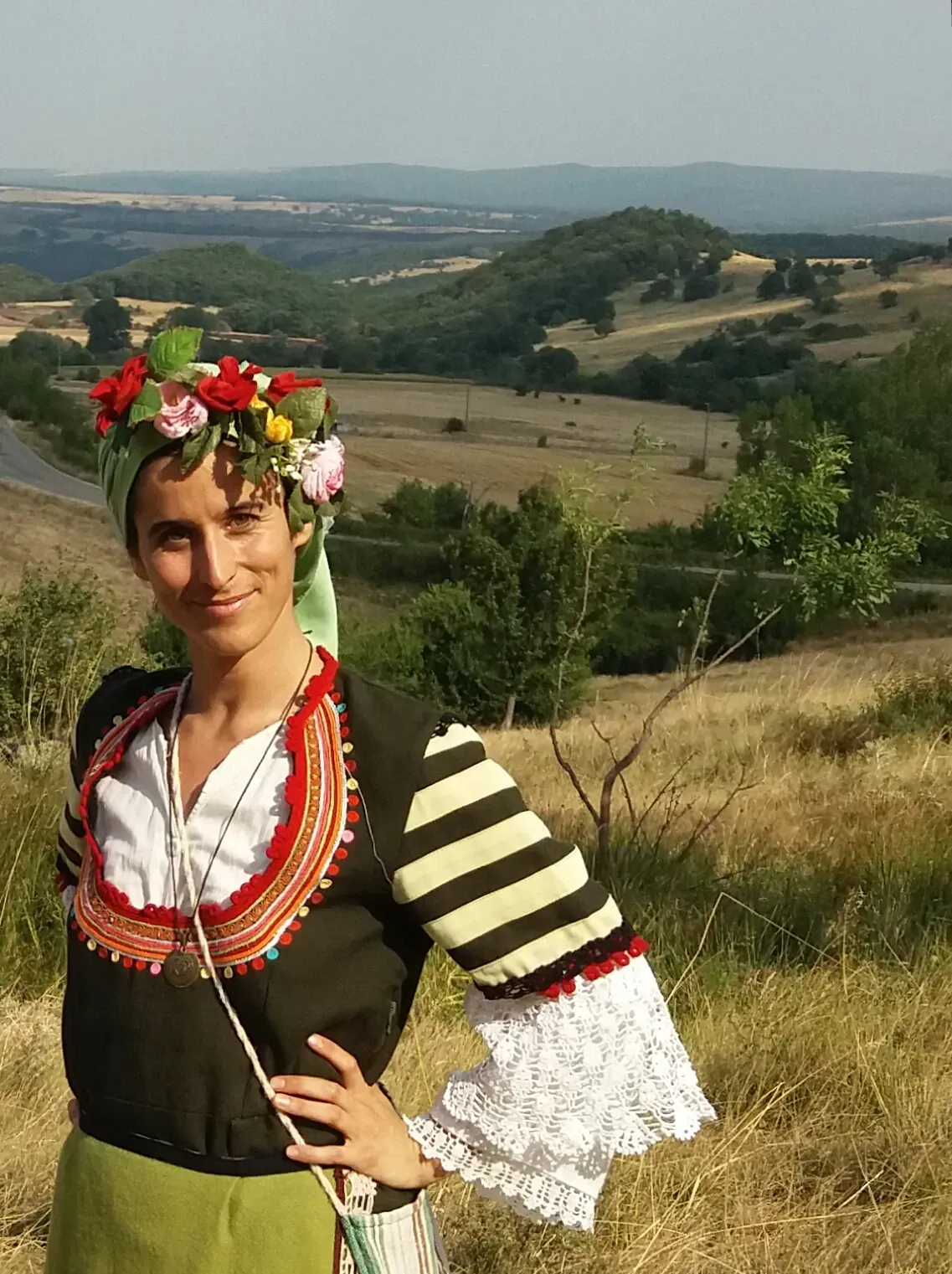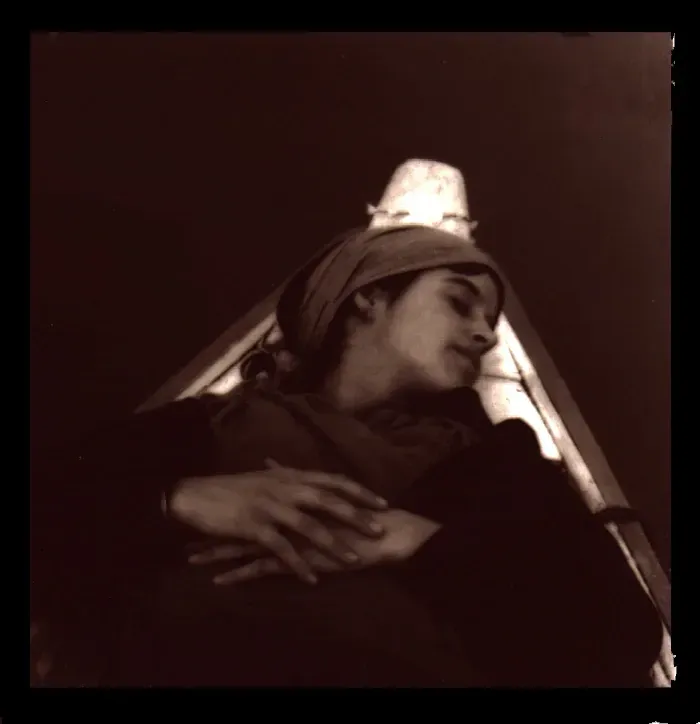See the Greatness in Others
Written by
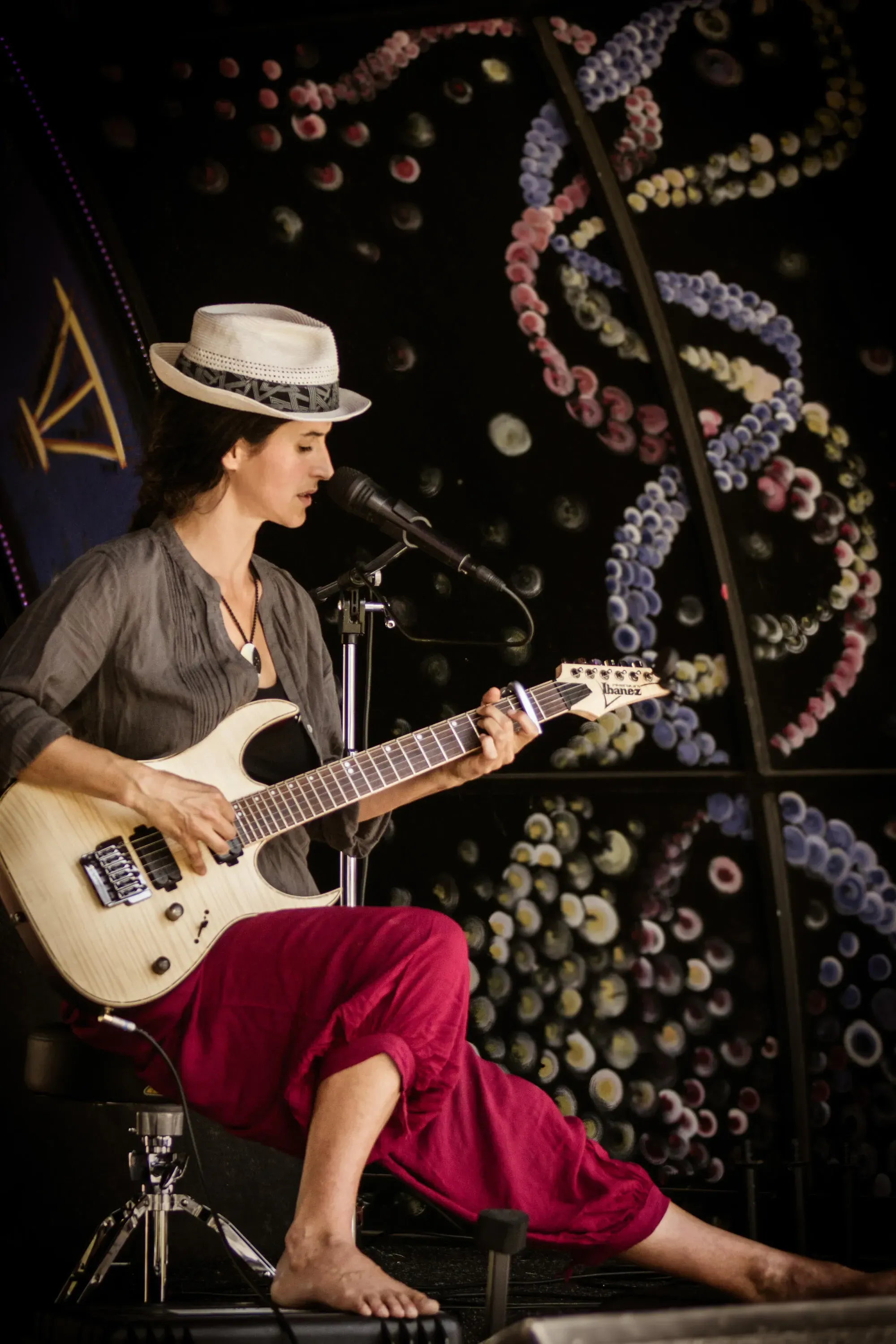
Singer Tui Mamaki’s garnered a strong following for her work as a solo artist, and with Mamaku Project and Acapollinations. Once described as “something of a one-woman Womad festival”, Mamaki performs traditional and contemporary music informed by her musical studies in Aotearoa, France, India and Bulgaria. With two upcoming performances at the first Whangārei Fringe Festival, Tui talks to her younger self about the creative journey to come.
My 22-year-old self was bold and free. Am I really in a position to give her any advice at all? I could certainly share some things I have come to appreciate.
See the greatness in others
At 22, you feel you have solutions. You go about providing small revolutions: hairdos, fire-dancing and hand-painted clothing. Busily creative, you sing, write, dance, sculpt, paint. Determined to drown out the sorrow of a first heartbreak, you laugh loudly and eat until it hurts.
As you deepen art, rather than busyness, you'll come to hear the inner songs. They'll bleed your heart of its agitation and you'll lose the extra 20kg. As you hear your creative yearnings, and honour them in practice, you'll look up and begin to notice other people.
They'll seem kinder, because you are.
At 34, many things you had created and identified with, will fall away. It'll be like a death, and so, the beginning of an appreciation. You'll see into the hearts of strangers, like a strange and beautiful garden, opening. At 40, when you become a parent, you'll come to know the might and bravery of an unsung tribe.
Speak with other women artists
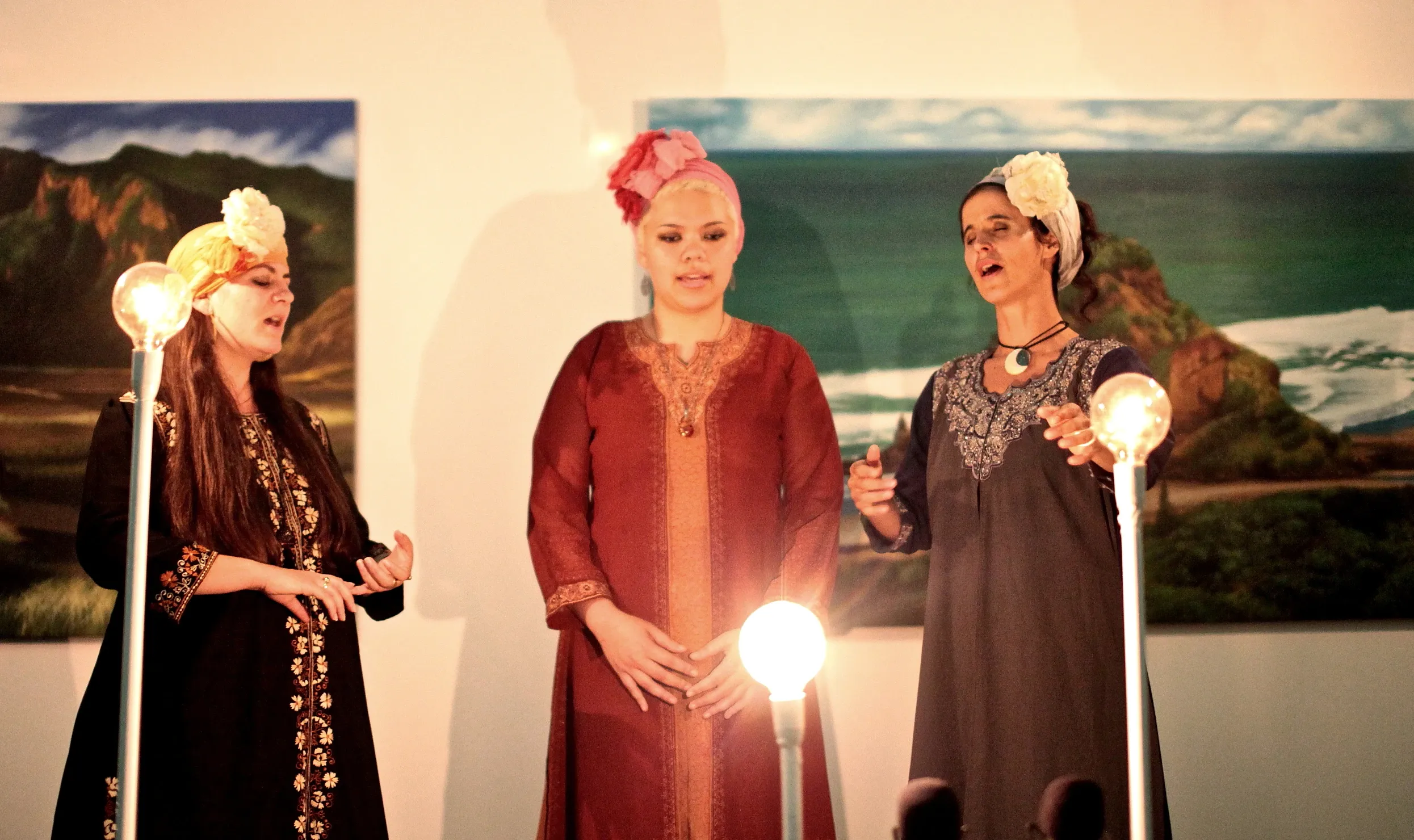
Tui Mamaki (right) performing with ACAPOLLiNATiONS at Te Uru Gallery, 2016. Photo: Tatiana Harper.
The industry you've landed in is thick with men, not always aware of the bias. Ah, the time to retreat, to write, to be out at night while the children sleep.
Seek out other women who are pioneering, transcending the temptation to be as men – those brave and patient enough to allow a circular type of creativity to emerge. It is less conspicuous, but there you'll find a resonance that the world needs.
You'll explore it in your early 30s with Songs from the Cupboard. It'll open up like a bomb when you travel to Bulgaria in 2011, meeting the very women you heard on record as a child. You'll plunge deep into Bulgarian folk song, language, land and love.
You'll feel like you are losing everything you built with Mamaku Project. You'll be born into your own gentleness, through loss. A blessing in disguise. You'll develop your first solo performances and record the album FLY. You'll transport audiences with your acapella all-women trio ACAPOLLiNATiONS.
Put music first (sing in the morning)
As a self-employed, multi-tasking creative, a way to truly safeguard your creative mojo is to honour it first thing in the morning. Mornings are sacred.
At 24, you’ll discover the practice of singing up the dawn in Varanasi, India. You’ll marry music itself, with garlands of flowers, beside the great Ganges. You will understand devotion as you understand the stars – an expansive, mysterious, miraculous process, much larger than yourself.
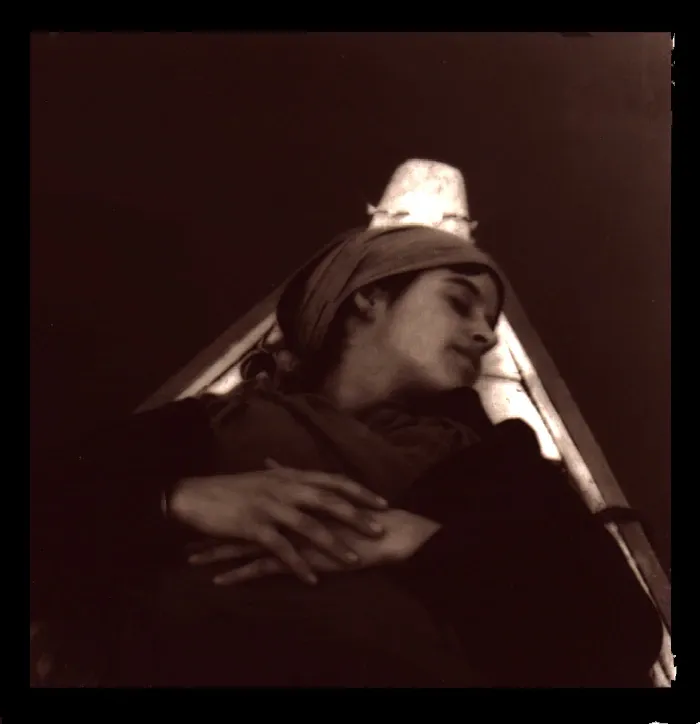
Tui Mamaki on the Ganga in Varanasi, 2004.
Allow tradition and improvisation to co-habitate
At 22, you study with Benat Axiari at Bayonne Conservatoire de Musique, France. Your performance voice was recently awakened at theatre school in New Zealand, with Bert van Dijk, who, inspired by Roy Hart Theatre, brought embodied passion to the potential of the voice.
In the chapel that is Benat's classroom, the poetry of Lorca, Neruda and Francois Cheng become springboards for vocal improvisation. Old Basque songs are transmitted by call and response, with metaphorically resounding stories of mountain life.
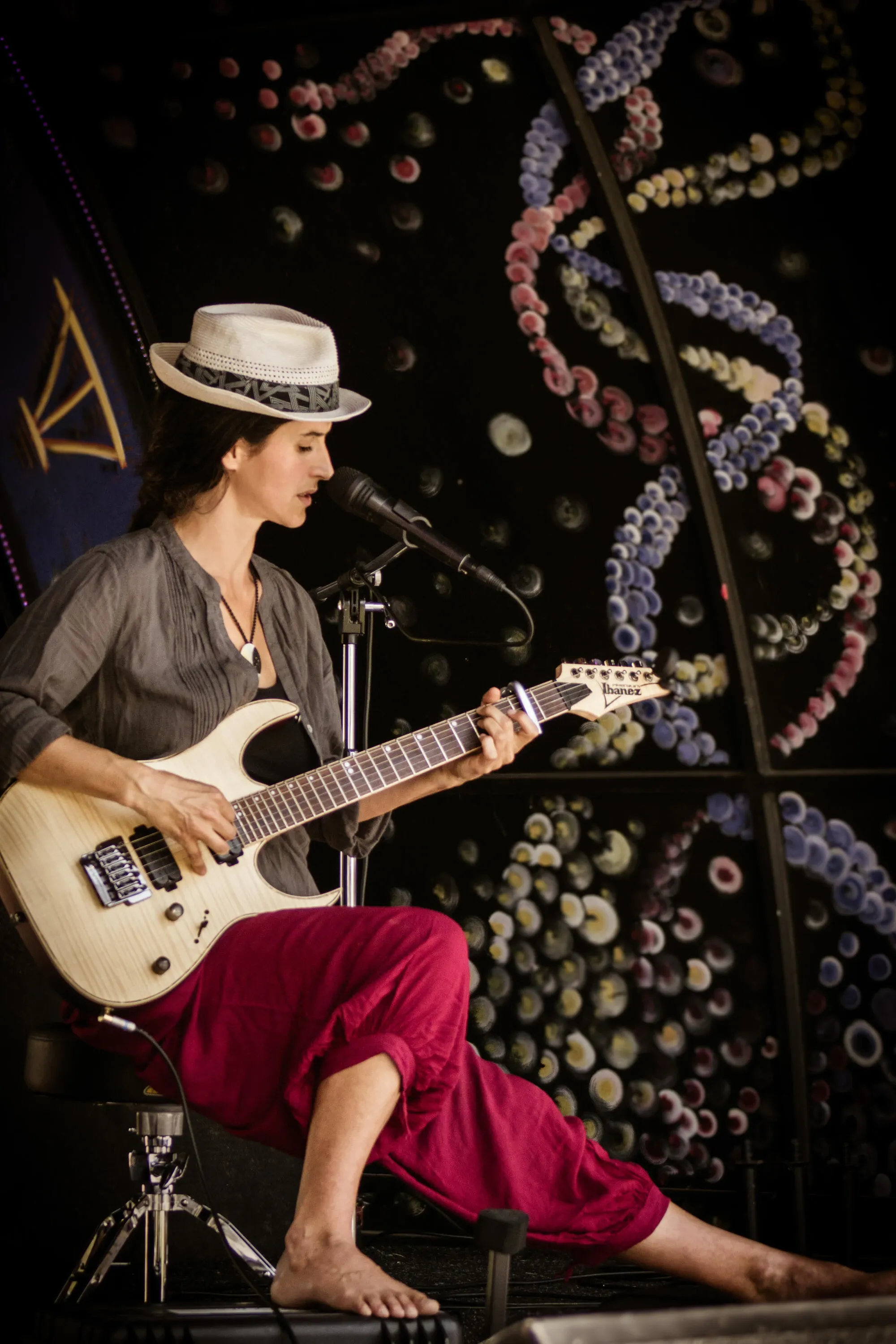
Tui Mamaki at Evolve Festival, 2020. Photo: Talita Walterfang.
Soon, via India, Aotearoa will call you back and you'll enter the realm of ‘original music’, starting Mamaku Project with your partner. The desire to be the origin of something will take you over. You'll wrestle with your authenticity, naivety and dependence on others to compose (you sing, he plays).
Going to jazz school in 2007 will plant a seed of autonomy, of being able to lead a musical idea to fruition and invite collaborators into your garden. The Mamaku Project era (until 2014) will be a kind of tunnel vision, fulfilling the potential of a specific aesthetic.
You'll come to tire of this and after the third album, gladly take the opportunity to do a post-grad in traditional Bulgarian folk song, in Bulgaria! You'll plunge deeply into this study and emerge with different rhythms in your veins. At 34, you'll start to play guitar for company. It'll become a place where matters of tradition and improvisation can move about freely.
Become of service
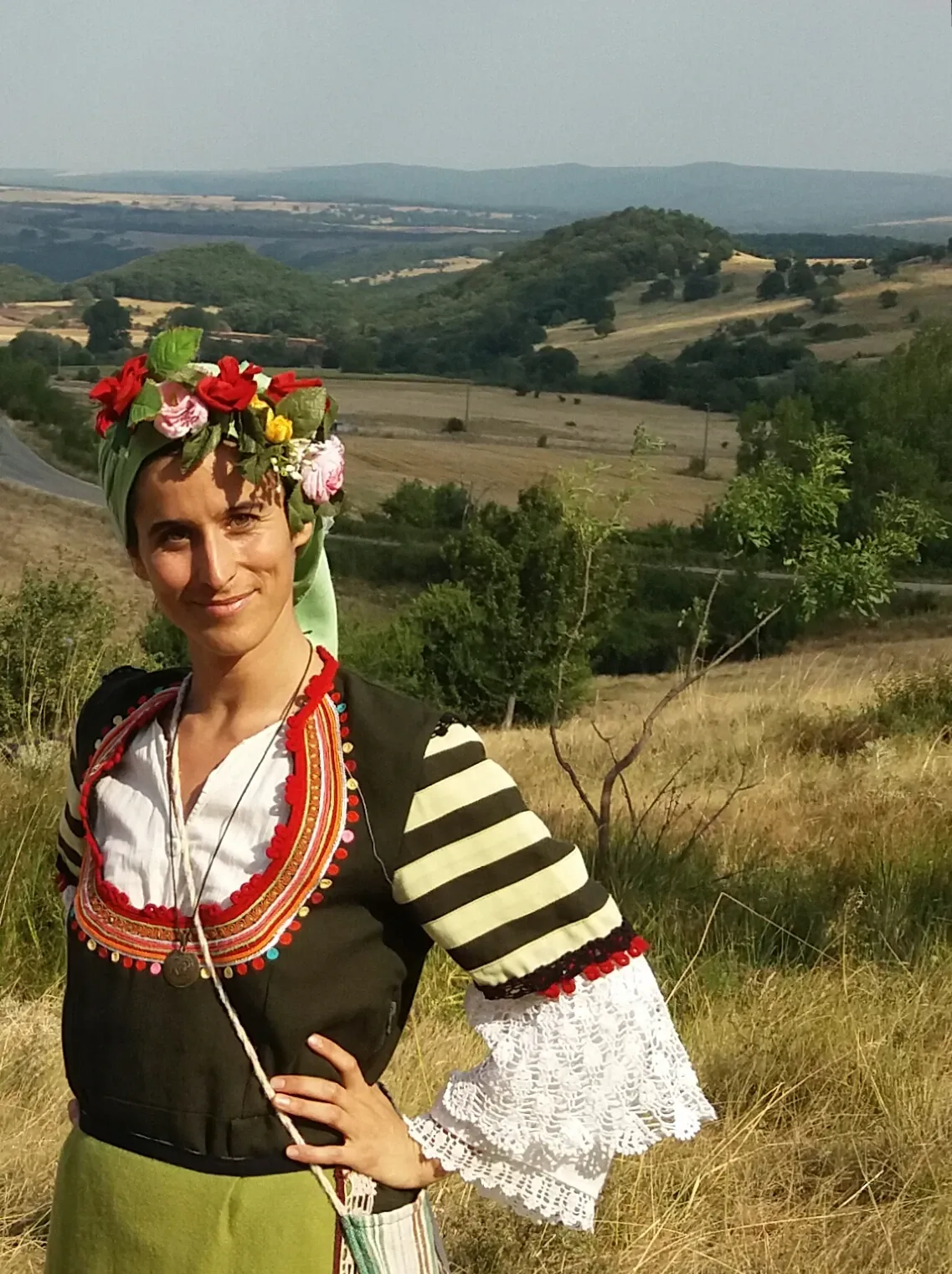
Tui Mamaki at Jeravna Festival in Bulgaria, 2017.
In Bulgaria, you will learn that singers do not belong to themselves. They are on tap and of service, for the good of the soul of the people. You’ll hear how old songs come to life through you, as they have through others, for generations. How people’s eyes glisten. The encompassing arc of melody, the treasure of ornamentation, the zest of dance rhythms or spacious contemplative phrases.
This is music designed to have the moment work through it. This will inform your compositions. New songs are distilled because your ego has less to prove. Hearts will take centrestage.
Spend time in quiet places
Your musical activities will take you on many adventures, but there'll come a time when you can no longer ignore the call to let a child in. It'll have its own spectacular entry, cancelling a national tour. You'll be floored, most delicately destroyed. You'll have very little space for words, your own or others'. You'll focus on making milk. For many moons.
Out of that unprecedented hush will emerge songs you didn't expect. A whole album of them. They'll name themselves The Moon and The Machine. They'll appear in the small windows of time, gifted by extended family. You'll have developed the practice of writing rather than talking, getting the chatter out onto the page.
But even then, often you'll just look up, feel the warmth of your cuppa in hand, and think nothing, as clouds roll by. Then, your toddler will call... and that small, quiet moment will carry you through.
